On 16 June 2025, UNSW Sydney buzzed with energy as the Concrete Decarbonisation Workshop unfolded, uniting trailblazers from industry, academia, and policy. Co-hosted by UNSW, the Decarbonising the Building Industry Network (DBI), and SmartCrete CRC, this dynamic event tackled the urgent mission of slashing carbon emissions in concrete production and construction. From cutting-edge mixes to smarter structures, the workshop sparked bold ideas and charted a path for a greener future.
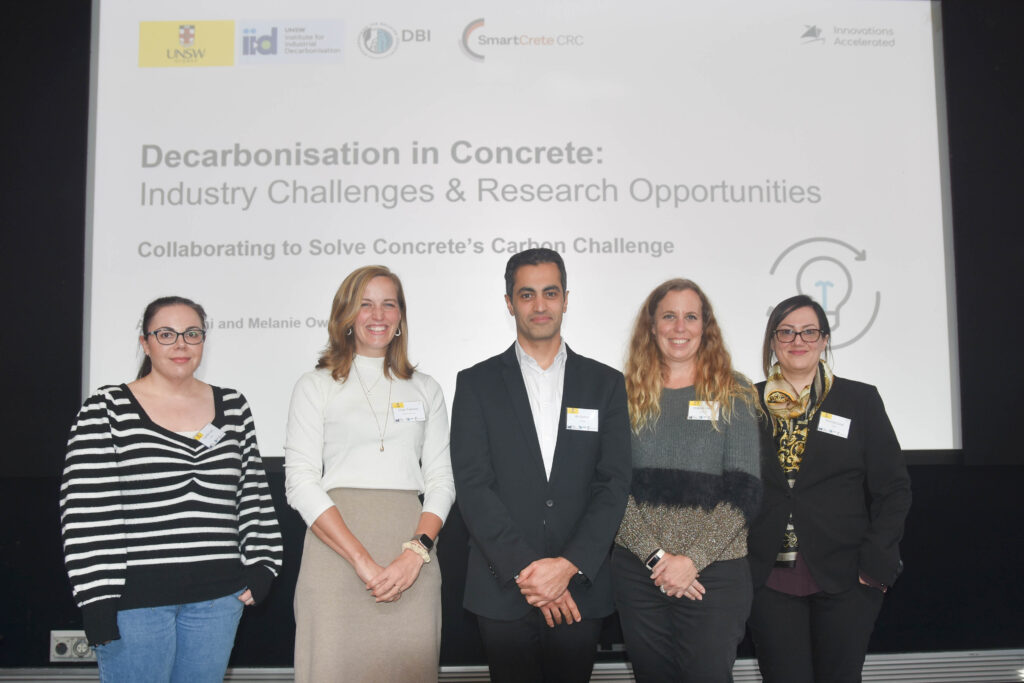
Hurdles and hot topics
The workshop dove headfirst into three pivotal areas:
Next-gen concrete mixes: Attendees called out client skepticism, sluggish regulations, and the gap between lab breakthroughs and real-world use as major roadblocks. Looking ahead, the lack of large-scale testing and innovative recycling solutions looms large.
Leaner, greener structures: Overdesigned buildings, wasteful construction practices, and overly cautious design habits are inflating carbon footprints. Long-term, the industry grapples with tight budgets, limited R&D, and resistance to change.
Longevity and lifecycle impact: Outdated durability tests and inconsistent lifecycle assessments (LCA) muddy the waters. Clear, cost-effective strategies for balancing performance and emissions are sorely needed.
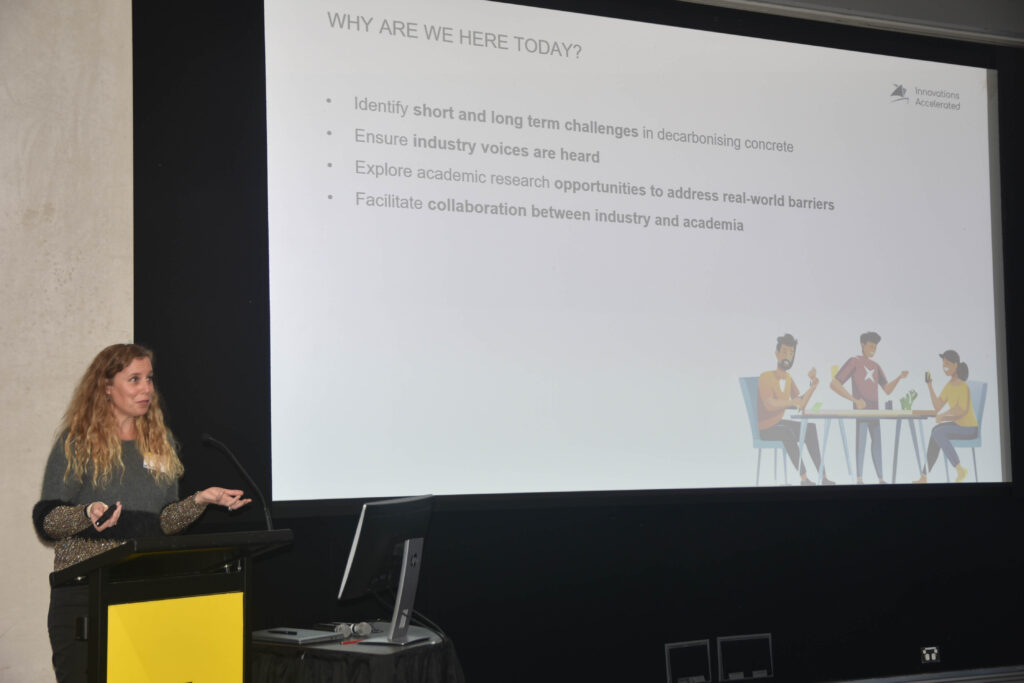
Sparks of innovation
The discussions ignited a slew of exciting research ideas:
Quick wins: Tailor supplementary cementitious materials (SCMs) for specific projects, fine-tune water use for tougher concrete, and push for performance-based standards that unleash creativity.
Big bets: Embrace circular economy principles, scale up carbon capture in cement systems, and launch pilot projects to prove low-carbon concrete’s mettle. Think 3D-printed structures, timber-concrete hybrids, and corrosion-resistant reinforcements like glass fibre-reinforced polymer.
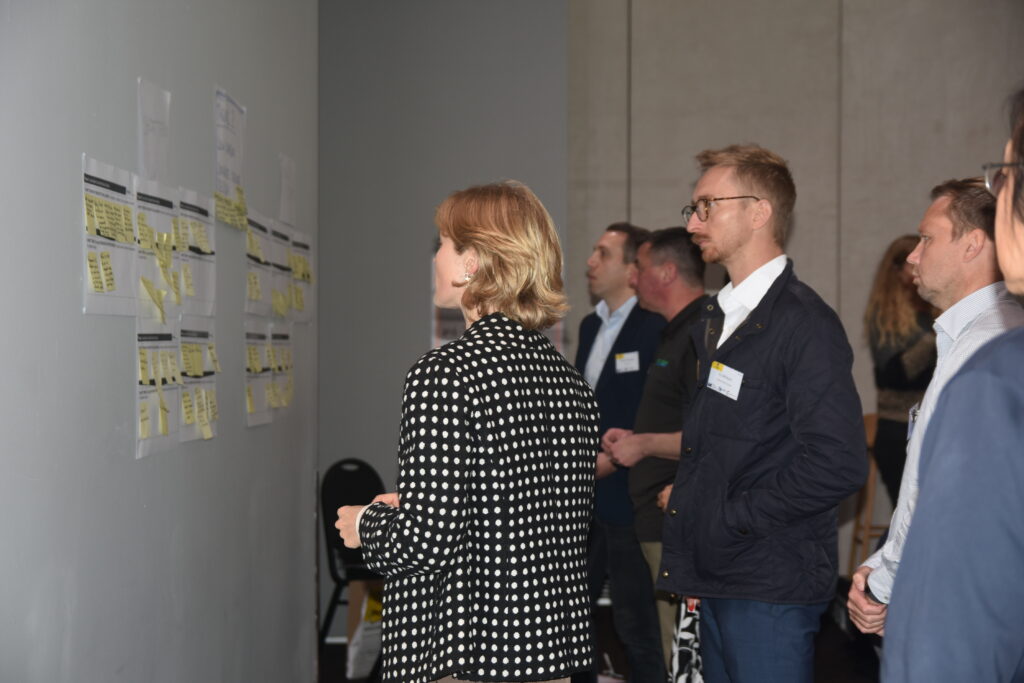
Collaboration in action
Keynote speakers Dr. Camille Holt (Boral), Dr. Mahdi Babai (WSP), Mrs. Clare Tubellets (SmartCrete CRC), and Dr. Shamilia Saleki (GHD) lit up the room with visionary insights. Facilitators Mel Owens and Eryk Korfel kept the ideas flowing, fostering a vibrant exchange that bridged academia and industry. The result? A shared roadmap to decarbonise concrete, one bold step at a time.
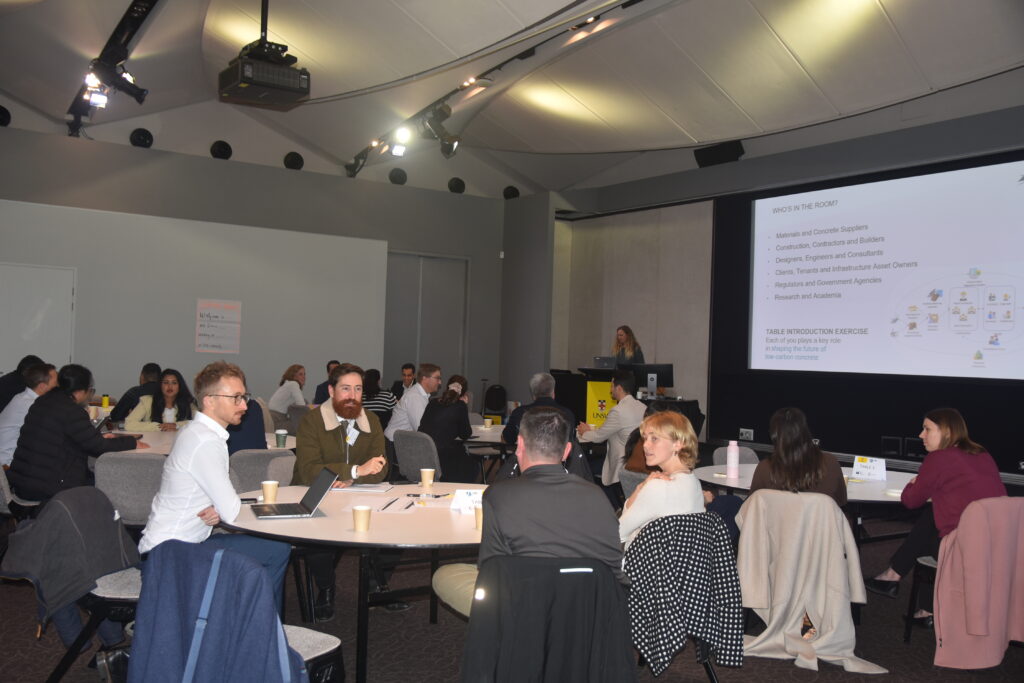
The workshop made one thing clear: transforming concrete demands tight-knit partnerships, modernised standards, and fearless innovation. DBI is all in, championing research and policies to make low-carbon concrete the norm.
A massive shoutout to our sponsors—UNSW, DBI, and SmartCrete CRC—and every participant who brought their A-game. Dive into the full workshop report on the DBI website for the complete scoop.
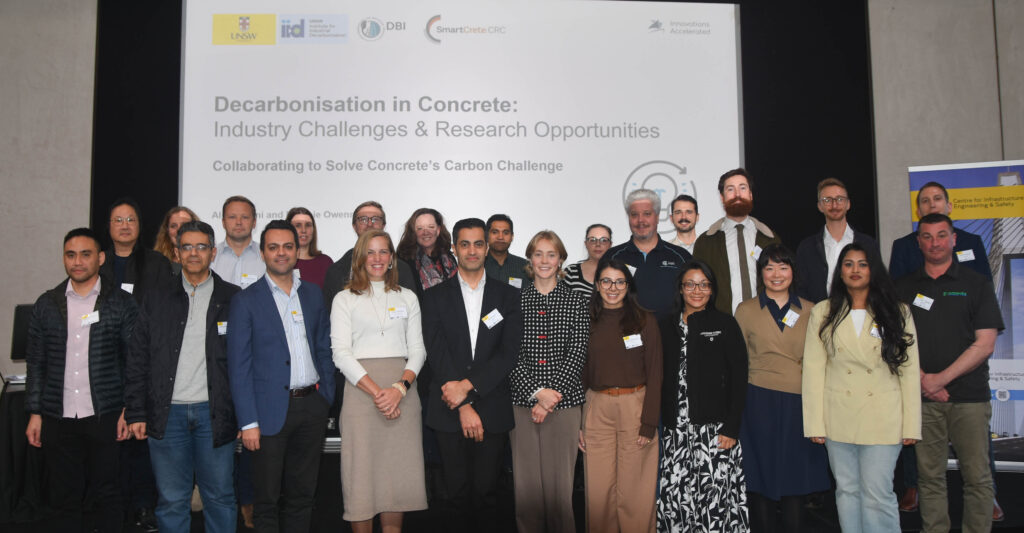
Read the Report of the event.
